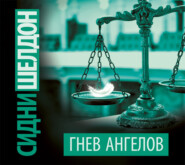По всем вопросам обращайтесь на: info@litportal.ru
(©) 2003-2025.
✖
Sidney Sheldon 3-Book Collection: If Tomorrow Comes, Nothing Lasts Forever, The Best Laid Plans
Автор
Год написания книги
2018
Настройки чтения
Размер шрифта
Высота строк
Поля
Tracy was filled with a sudden fear. Did it mean that she was going to be transferred back to the prison? Had Big Bertha used her influence to arrange it? Or had Mrs Brannigan decided that Amy and Tracy were getting too close?
‘Yes, Mrs Brannigan.’
The warden was standing in the doorway of his office when Tracy was escorted in. ‘You’d better sit down,’ he said.
Tracy tried to read the answer to her fate from the tone of his voice.
‘I have some news for you.’ He paused, filled with some emotion that Tracy did not understand. ‘I have just received an order from the governor of Louisiana,’ Warden Brannigan went on, ‘giving you a full pardon, effective immediately.’
Dear God, did he say what I think he said? She was afraid to speak.
‘I want you to know,’ the warden continued, ‘that this is not being done because it was my child you saved. You acted instinctively in the way any decent citizen would have acted. By no stretch of the imagination could I ever believe that you would be a threat to society.’ He smiled and added, ‘Amy is going to miss you. So are we.’
Tracy had no words. If the warden only knew the truth: that if the accident had not happened, the warden’s men would have been out hunting her as a fugitive.
‘You’ll be released the day after tomorrow.’
Her ‘getup’. And still Tracy could not absorb it. ‘I – I don’t know what to say.’
‘You don’t have to say anything. Everyone here is very proud of you. Mrs Brannigan and I expect you to do great things on the outside.’
So it was true: she was free. Tracy felt so weak that she had to steady herself against the arm of the chair. When she finally spoke, her voice was firm. ‘There’s a lot I want to do, Warden Brannigan.’
On Tracy’s last night in prison an inmate from Tracy’s old cell block walked up to her. ‘So you’re getting out.’
‘That’s right.’
The woman, Betty Franciscus, was in her early forties, still attractive, with an air of pride about her.
‘If you need any help on the outside, there’s a man you should see in New York. His name is Conrad Morgan.’ She slipped Tracy a piece of paper. ‘He’s into criminal reform. He likes to give a hand to people who’ve been in prison.’
‘Thank you, but I don’t think I’ll need –’
‘You never know. Keep his address.’
Two hours later, Tracy was walking through the penitentiary gates, moving past the television cameras. She would not speak to the reporters, but when Amy broke away from her mother and threw herself into Tracy’s arms, the cameras whirred. That was the picture that came out over the evening news.
Freedom to Tracy was no longer simply an abstract word. It was something tangible, physical, a condition to be enjoyed and savoured. Freedom meant breathing fresh air, privacy, not standing in lines for meals, not listening for bells. It meant hot baths and good-smelling soaps, soft lingerie, pretty dresses and high-heeled shoes. It meant having a name instead of a number. Freedom meant escape from Big Bertha and fear of gang rapes and the deadly monotony of prison routine.
Tracy’s newfound freedom took getting used to. Walking along a street, she was careful not to jostle anyone. In the penitentiary bumping into another prisoner could be the spark that set off a conflagration. It was the absence of constant menace that Tracy found most difficult to adjust to. No one was threatening her.
She was free to carry out her plans.
In Philadelphia, Charles Stanhope III saw Tracy on television, leaving the prison. She’s still beautiful, he thought. Watching her, it seemed impossible that she had committed any of the crimes for which she had been convicted. He looked at his exemplary wife, placidly seated across the room, knitting. I wonder if I made a mistake.
Daniel Cooper watched Tracy on the television news in his apartment in New York. He was totally indifferent to the fact that she had been released from prison. He clicked off the television set and returned to the file he was working on.
When Joe Romano saw the television news, he laughed aloud. The Whitney girl was a lucky bitch. I’ll bet prison was good for her. She must be really horny by now. Maybe one day we’ll meet again.
Romano was pleased with himself. He had already passed the Renoir to a fence, and it had been purchased by a private collector in Zurich. Five hundred grand from the insurance company, and another two hundred thousand from the fence. Naturally, Romano had split the money with Anthony Orsatti. Romano was very meticulous in his dealings with him, for he had seen examples of what happened to people who were not correct in their transactions with Orsatti.
At noon on Monday Tracy, in her Lureen Hartford persona, returned to the First Merchants Bank of New Orleans. At that hour it was crowded with customers. There were several people in front of Lester Torrance’s window. Tracy joined the line, and when Lester saw her, he beamed and nodded. She was even more goddamned beautiful than he had remembered.
When Tracy finally reached his window, Lester crowed, ‘Well, it wasn’t easy, but I did it for you, Lureen.’
A warm, appreciative smile lit Lureen’s face. ‘You’re just too wonderful.’
‘Yes, sir, got ’em right here.’ Lester opened a drawer, found the box of cheques he had carefully put away, and handed it to her. ‘There you are. Four hundred blank cheques. Will that be enough?’
‘Oh, more than enough, unless Mr Romano goes on a cheque-writing spree.’ She looked into Lester’s eyes and sighed, ‘You saved my life.’
Lester felt a pleasurable stirring in his groin. ‘I believe people have to be nice to people, don’t you, Lureen?’
‘You’re so right, Lester.’
‘You know, you should open your account here. I’d take real good care of you. Real good.’
‘I just know you would,’ Tracy said softly.
‘Why don’t you and me talk about it over a nice quiet dinner somewhere?’
‘I’d surely love that.’
‘Where can I call you, Lureen?’
‘Oh, I’ll call you, Lester.’ She moved away.
‘Wait a min –’ The next customer stepped up and handed the frustrated Lester a sackful of coins.
In the centre of the bank were four tables that held containers of blank deposit and withdrawal slips, and the tables were crowded with people busily filling out forms. Tracy moved away from Lester’s view. As a customer made room at a table, Tracy took her place. The box that Lester had given her contained eight packets of blank cheques. But it was not the cheques Tracy was interested in: it was the deposit slips at the back of the packets.
She carefully separated the deposit slips from the cheques and, in fewer than three minutes, she was holding eighty deposit slips in her hand. Making sure she was unobserved, Tracy put twenty slips in the metal container.
She moved on to the next table, where she placed twenty more deposit slips. Within a few minutes, all of them had been left on the various tables. The deposit slips were blank, but each one contained a magnetized code at the bottom, which the computer used to credit the various accounts. No matter who deposited money, because of the magnetic code, the computer would automatically credit Joe Romano’s account with each deposit. From her experience working in a bank, Tracy knew that within two days all the magnetized deposit slips would be used up and that it would take at least five days before the mix-up was noticed. That would give her more than enough time for what she planned to do.
On the way back to her hotel, Tracy threw the blank cheques into a rubbish bin. Mr Joe Romano would not be needing them.
Tracy’s next stop was at the New Orleans Holiday Travel Agency. The young woman behind the desk asked, ‘May I help you?’
‘I’m Joseph Romano’s secretary. Mr Romano would like to make a reservation for Rio de Janeiro. He wants to leave this Friday.’
‘Will that be one ticket?’
‘Yes. First class. An aisle seat. Smoking, please.’
‘Round trip?’
‘One way.’

















